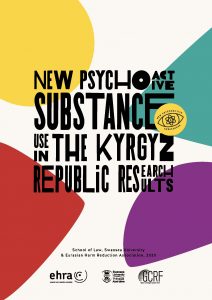In Kyrgyzstan, the first cases of synthetic drugs in the drug market started to be documented in 2013. At that time, synthetic cannabinoids, better known as “spices,” and herbal products entered the drug market.
For a few years these substances were not regulated by national laws and were widely used, especially among young people. Only after almost 3 years, in 2015, did Kyrgyzstan adopt a law banning synthetic drugs, including spices and other herbal smoking mixtures. As spices started slowly disappearing from the drug market, another group of drugs—synthetic cathinones, better known as “salts,” “bath salts,” and “crystals”—entered the market.
This report provides a general overview of drug use and trafficking (including NPS) in Kyrgyzstan, as well as of the risks and consequences of NPS use. It also reviews what responses to the consumption of NPS exist, and the needs of NPS users (that should be developed) in the area of harm reduction and treatment. The document concludes with recommendations for decision makers and specialists in the field for ways to improve responses to emerging NPS challenges.

